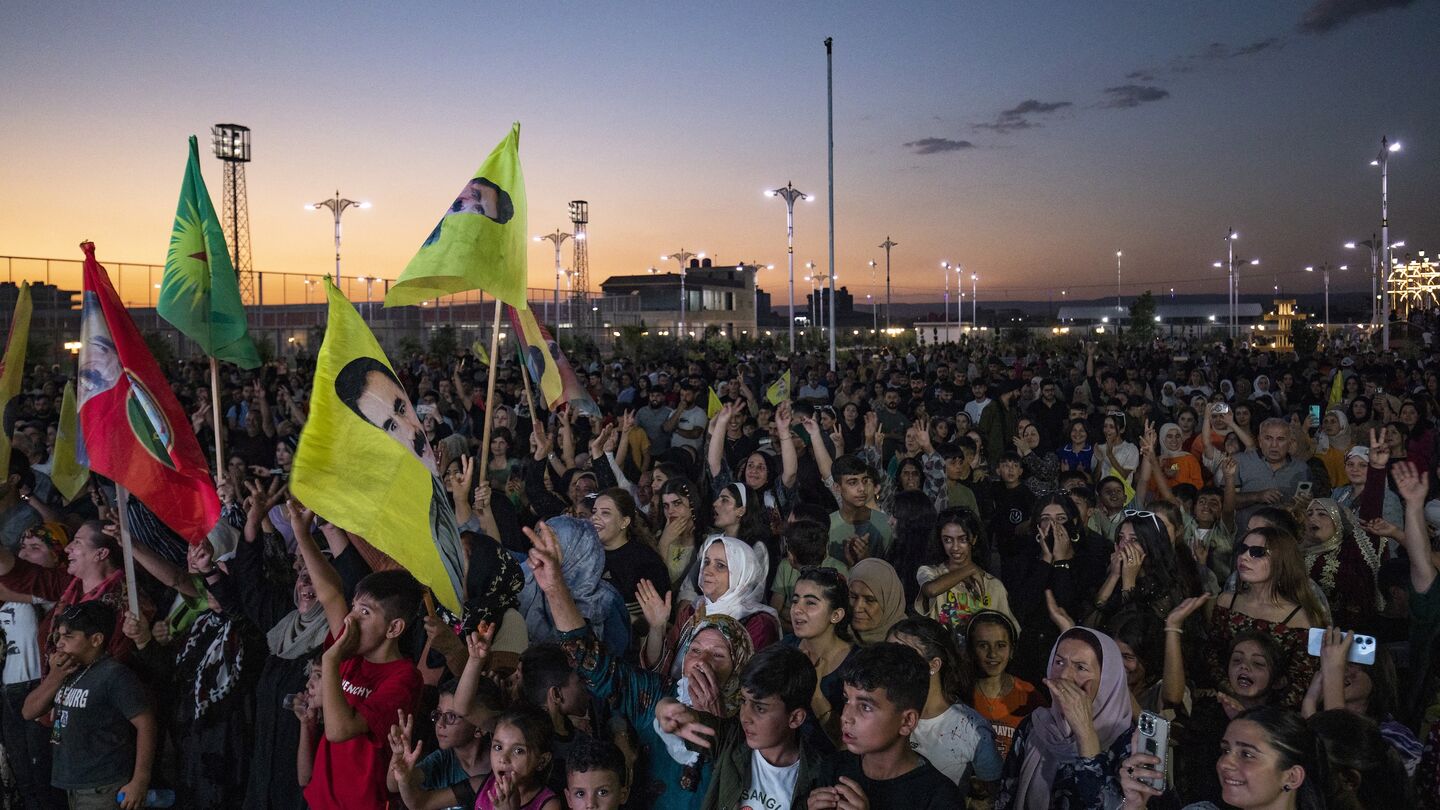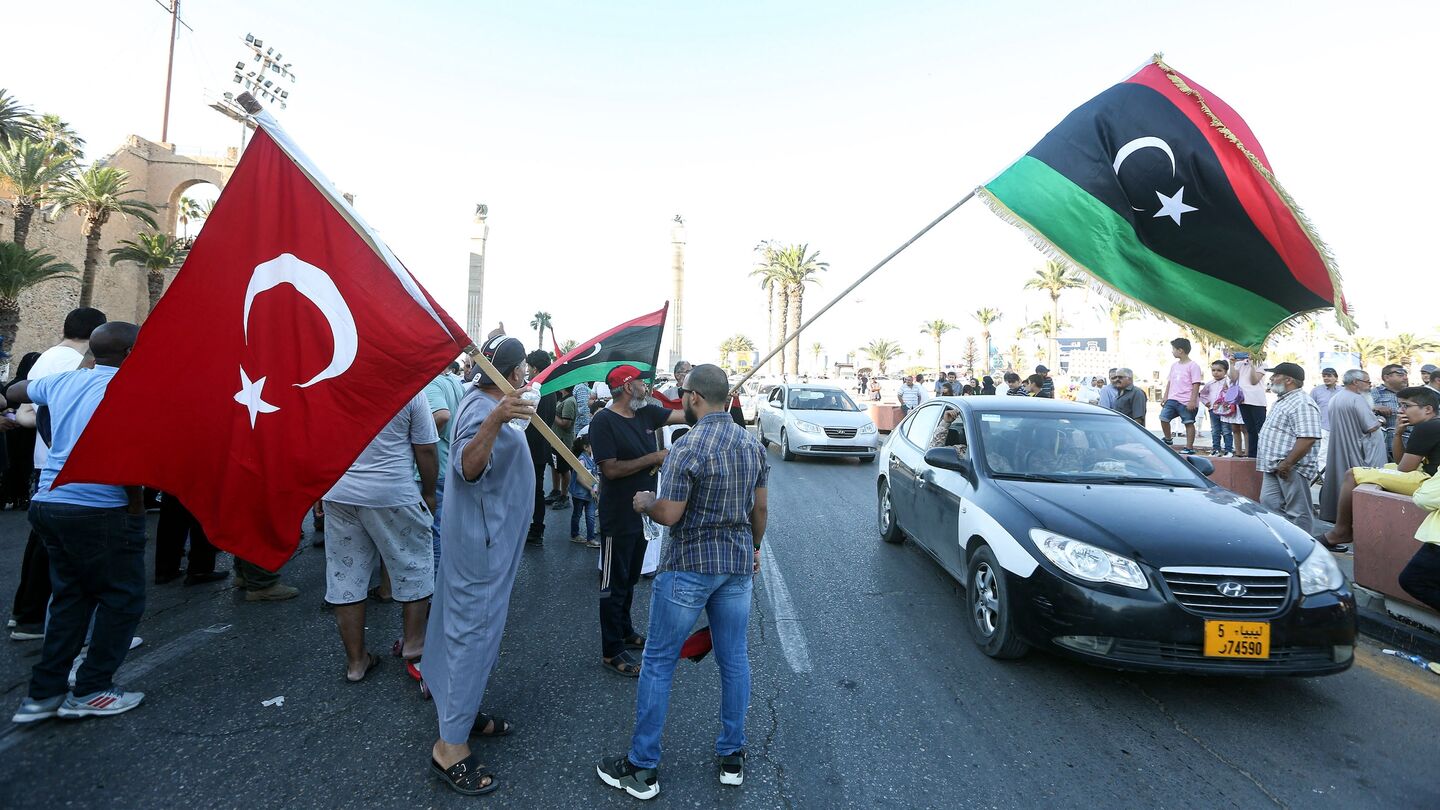A tale of two Turkeys
Greetings from a sweltering Ankara.
This week in Turkey was one of striking contrasts: While peace talks with Kurdish militants gained momentum, the government intensified its crackdown on the main opposition. Today’s newsletter tells the tale of two Turkeys unfolding simultaneously.
Wishing you a breezy weekend, ☮️
Ezgi (Follow me on X: @ezgi_akin)
What topics would you like to read more about in this newsletter? Please share your suggestions with me at eakin@al-monitor.com.

Leading this week: A tale of two Turkeys

Supporters attend a rally airing a televised statement by Abdullah Ocalan, the jailed leader and founder of Turkey's Kurdistan Workers Party (PKK), in Syria's predominantly Kurdish northeastern city of Qamishli, July 9, 2025. — DELIL SOULEIMAN/AFP via Getty Images
Thirty Kurdistan Workers Party (PKK) militants today symbolically laid down their weapons, marking the closest point Turkey and the militant group have ever come to peace in a conflict that has claimed more than 40,000 lives over four decades.
The ceremony, held in the Iraqi Kurdistan Region, kicked off the PKK's disarmament process as 30 camouflaged militants lined up single file, placed their long-barreled rifles into a large cauldron and set them ablaze.
Steps toward peace: The symbolic ceremony was a hopeful turning point in peace talks between the Turkish government and the militant group, a process first reported by Amberin Zaman last year and extensively covered by both her and me since then.
Yet the hopeful atmosphere of peace in northern Iraq stood in stark contrast to the full-throttle crackdown against the country’s main opposition Republican People’s Party (CHP) back in Turkey.
Crackdown deepens: The crackdown, which started with the jailing of Istanbul Mayor Ekrem Imamoglu on March 23, spread across Turkey over the past week.
Three more CHP mayors in Turkey’s Mediterranean provinces of Antalya and Adana — Zeydan Karalar and Muhittin Bocek, as well as Abdurrahman Tutdere, mayor of the southeastern province of Adiyaman — were detained last Saturday.
Earlier this week Tutdere was released to house arrest, while Karalar and Bocek remain jailed pending trials, raising the total number of CHP mayors behind bars to 14.
More than 200 of their associates also remain in jail pending trials over either corruption or terrorism charges.
While Turkish President Recep Tayyip Erdogan’s government insists that the judiciary in Turkey was independent, its critics slam the crackdown as politically motivated and aimed at sidelining the main opposition at a time when its support is on the rise.
As question marks over the government's commitment to the free elections increase, Sozcu TV, a news channel aligned with the CHP, went off air for 10 days on Wednesday night for merely covering the street protests in response to Imamoglu’s detention.
Strategic peace? Erdogan needs the DEM Party lawmakers' support to draft a new constitution that could extend his two-decade-plus rule and pass it from the parliament. So solving the Kurdish conflict brings additional benefits.
But can Erdogan's party wage war on the main opposition without consequences? Turkish public opinion remains divided on how long and how far the crackdown on the main opposition can last as the government pursues peace with the Kurds.
Analyst view: According to Hatem Ete, founder of Ankara-based research institute and pollster Panorama TR, the duality is not sustainable.
Erdogan needs the main opposition’s support to advance peace talks and push through a new constitution, Ete told me, warning that otherwise both initiatives would lack broad democratic support.
“Both initiatives require CHP’s support for political and social legitimacy,” he said.
“Targeting the CHP to this extent greatly increases the risk of stumbling on both fronts.”
Nacho Amor, the European Parliament's rapporteur on Turkey, echoed a similar warning earlier this week. Without democracy for all, there can be none for a few, Amor told Amberin in her podcast.

Other top stories

People wave flags of Libya (R) and Turkey (L) during a demonstration in the Martyrs' Square in the center of the Libyan capital Tripoli on June 21, 2020. — MAHMUD TURKIA/AFP via Getty Images
Rosaleen Carroll covered the deepening cooperation between Turkey and Libya’s unity government after the two sides signed a military cooperation agreement on Thursday.
Barin Kayaoglu explores how Turkey would achieve NATO’s new 5% GDP spending target for members.
Also on our radar
I’m reading a take by Soner Cagaptay of the Washington Institute, one of our favorite analysts, on how Turkey sees Iran-Israel conflict.
On a lighter note, I'm listening to "Turkitsch," a new album by Kacak & The Wave, made in homage to '60s/'70s retro Turkish rock. Listen here.